
Eco-design studio for front-end applications

Eco-design studio for front-end applications
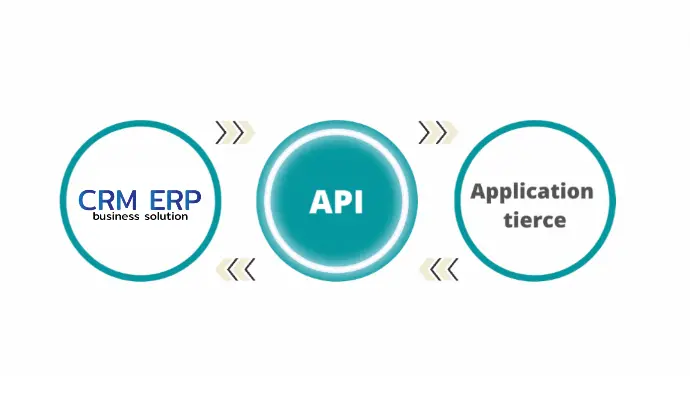
Universal connectors
CRM and ERP compatible
Custom connectors available
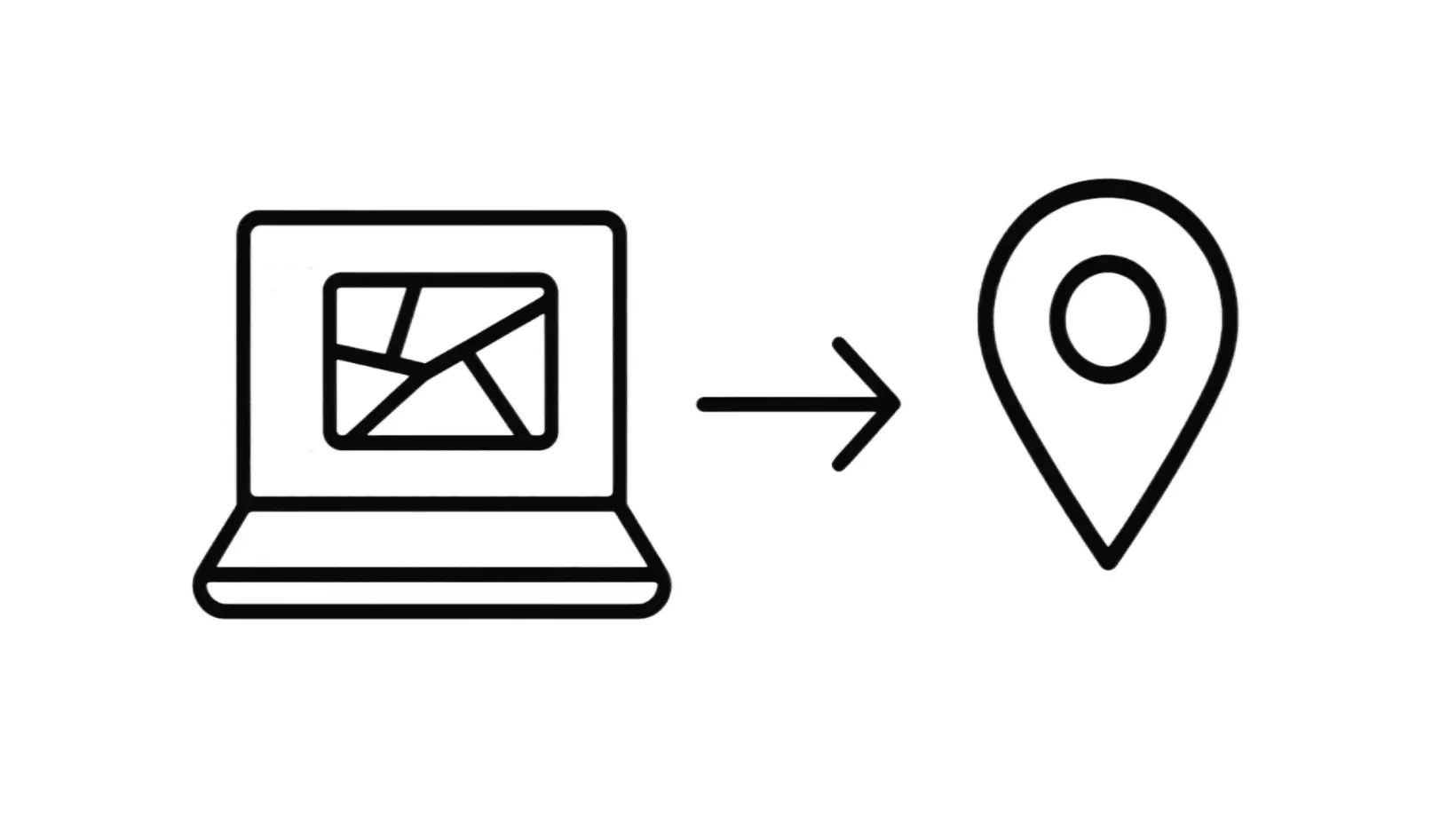
Local First architecture
Local user storage
Uninterrupted accessibility
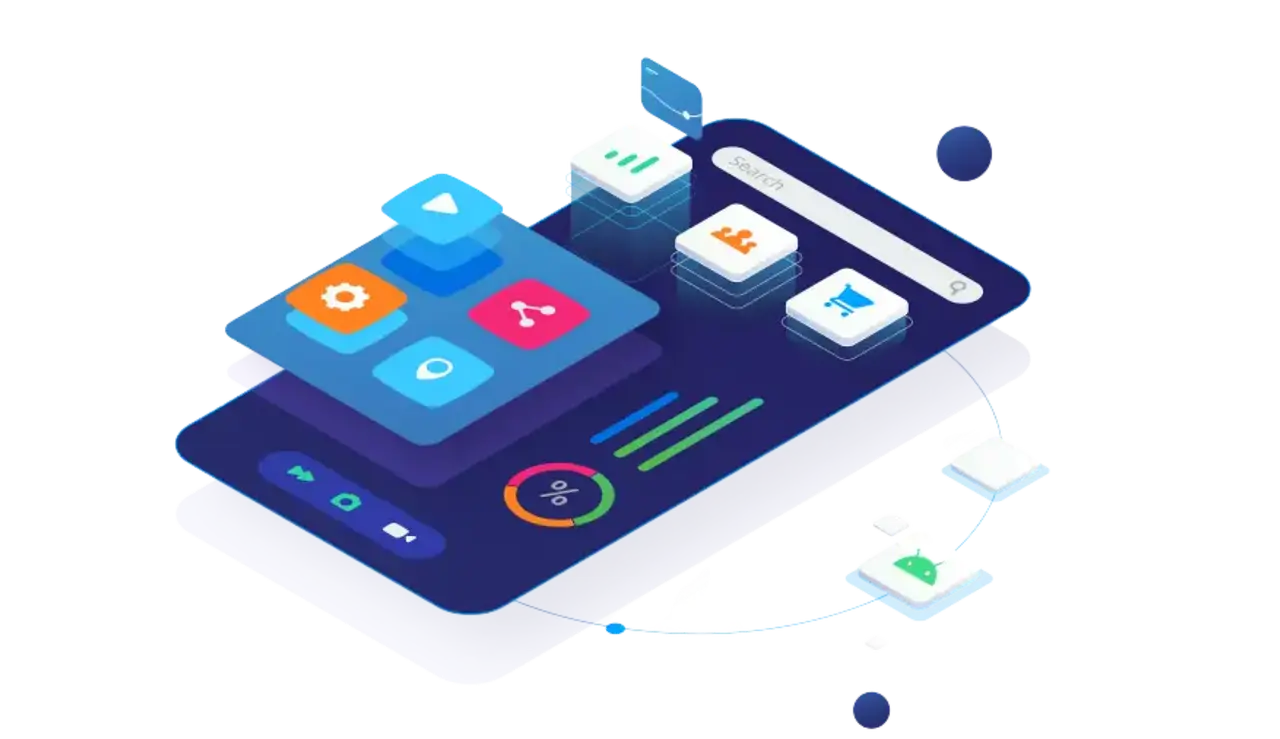
Modular design
Low/no-code development
Web standard UI modular blocs
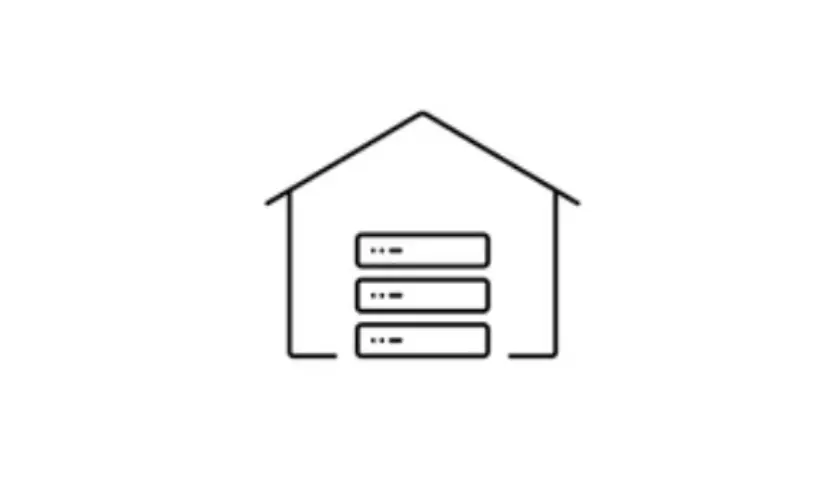
Independent framework
No hidden logic
No cloud dependencies
LocalFlow is fully built into our low-code / no-code devlopment studio Daquota.io
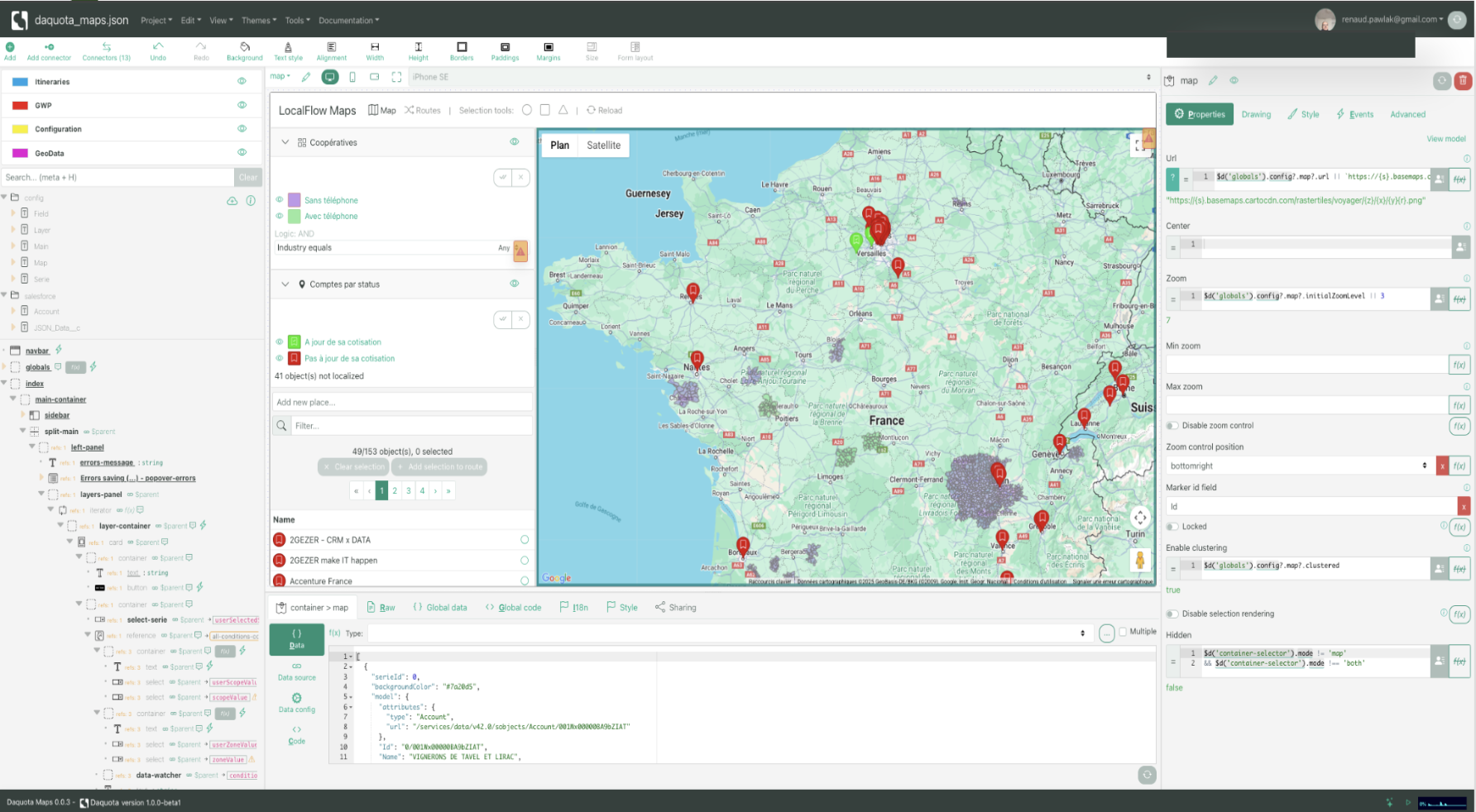
Daquota is built on three core principles
Daquota is built on three core principles

LIGHT - Eco-design
obriety — reducing the environmental footprint of applications by limiting cloud calls, unnecessary storage, and server energy consumption.
Lightness — optimizing code for speed, smoothness, and stability — with no overload or unnecessary features, for a better user experience.
Durability — simplifying architecture to improve maintenance, scalability, and longevity — without relying on heavy technologies or infrastructures.

LEAN - Feature-oriented software development (FOSD)
Modularité — Code organized by independent features to simplify reuse, customization, and application scalability.
Variability — managing multiple versions of an application from a single base, adapted to specific client or platform needs.
Scalability — developing, testing, and updating each feature in isolation, reducing regression risks and accelerating development cycles.

LOCAL - Local First architecture
Autonomie — Reduced cloud dependency through a lightweight infrastructure — processing is handled directly on the device, minimizing hosting costs and server requirements.
Reliability — ensuring continuous access, even offline, for a smoother user experience. Automatic synchronization resumes once the connection is restored.
Eco-responsability — lowering data transfers and server use to reduce energy consumption and the overall carbon footprint of the application.

LIGHT - Eco-design
obriety — reducing the environmental footprint of applications by limiting cloud calls, unnecessary storage, and server energy consumption.
Lightness — optimizing code for speed, smoothness, and stability — with no overload or unnecessary features, for a better user experience.
Durability — simplifying architecture to improve maintenance, scalability, and longevity — without relying on heavy technologies or infrastructures.

LEAN - Feature-oriented software development (FOSD)
Modularity — structuring code into independent features that make applications easier to reuse, customize, and evolve.
Variability — managing multiple versions of an application from a single base, adapted to specific client or platform needs.
Scalability — developing, testing, and updating each feature in isolation, reducing regression risks and accelerating development cycles.

LOCAL - Local First architecture
Autonomy — reducing cloud dependency through a lightweight infrastructure. Processing is done on the device, minimizing hosting costs and server usage.
Reliability — ensuring continuous access, even offline, for a smoother user experience. Automatic synchronization resumes once the connection is restored.
Eco-responsability — lowering data transfers and server use to reduce energy consumption and the overall carbon footprint of the application.
